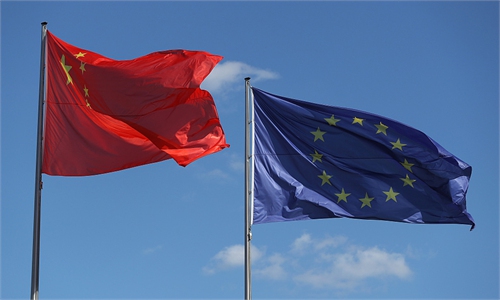China unveils new foreign investment security review rules to align with intl practice

Investment File Photo: VCG
China unveiled new rules for reviewing foreign investment on security grounds over the weekend in a major move to align with global practice in regulating foreign investment in the military, key energy and information technology sectors, and financial services.
Arguing against misleading claims that distort the nation's efforts to fill the regulatory gap as a tit-for-tat response to US sanctions, experts noted that the new rules are intended to strengthen China's legal framework for greater opening-up and they would augur well for legitimate foreign businesses looking to the Chinese market while serving as a sharp weapon to battle offenders.
The National Development and Reform Commission (NDRC) and the Ministry of Commerce (MOFCOM) on Saturday jointly released the new rules, scheduled to come into force in 30 days. The 23-clause new rules rest upon the Foreign Investment Law and the National Security Law as a legal basis.
Foreign investment in the military sector, among other national defense and security related areas, and investments involving foreign persons near military facilities would be subject to the new rules.
Foreign investment in key areas that implicate national security such as important agricultural production, energy and resources, cultural products and services, information technologies and internet products and services, and financial services where such investment amounts to actual control of the investment targets will also fall under the purview of the new review regulation.
The significance of the security review on foreign investments in China's arms sector and national defense is self-evident amid the country's continued and expanding reform and opening-up, Song Zhongping, a Chinese military expert and TV commentator, told the Global Times on Sunday.
If foreign investments manage to tap into China's arms industry and military development without proper supervision, the risk is high that foreign capital gets some say in China's national defense development that would harm China's national security. Another possibility is that improper investment in Chinese arms companies or military units would have to report work progress to foreign investors, during which confidential intelligence could leak, a Chinese expert on intelligence security told the Global Times on Sunday on the condition of anonymity.
Under the new rules, a work mechanism for security review on foreign investment would be put in place, with NDRC and MOFCOM heading the review task force whose office is set up in NDRC.
"This new rule is by no means a unique practice by China in reaction to changing global situations, but a catch-up the nation needs to align itself with similar legislation in major global economies," Gao Lingyun, an expert at the Chinese Academy of Social Sciences in Beijing, told the Global Times on Sunday.
The hype about the new rules being relied on as a means of vengeance against an escalating US clampdown on Chinese businesses can barely be justified, Gao said.
In a fresh sign of reckless confrontation, the US announced Friday the addition of 59 Chinese firms including major Chinese chipmaker Semiconductor Manufacturing International Corporation (SMIC) to its entity list of export controls.
Law-abiding foreign businesses should be worry-free about the new rules which are an important part of the nation's efforts to coordinate openness and security in the next Five-Year Plan and through 2035, Gao said.
China passed the new foreign investment law, which made it clear that the country would launch a security review mechanism for foreign investment.
In another statement on the NDRC's website on Saturday, an unidentified official with the review work mechanism office stressed the new rules are not intended to implement protectionism or to roll back on opening-up.
Stating that opening-up without security guarantees would be unsustainable, the official pledged to ensure targeted review of foreign investments that have an impact on or might affect national security and to avoid abuse of security review.
National security reviews of foreign investment is a common international practice to balance economic benefits and efforts to safeguard national security, according to the official, citing similar practices having been signed into law or being mulled in the US, EU, Australia, Germany, Japan and the UK.
It is completely normal for China to set up these regulations, which are common in other countries, Song said. "The US has the Foreign Investment Risk Review Modernization Act (FIRRMA), with Australia and the EU having similar laws and regulations."
FIRRMA was signed into US law in August 2018, which strengthens the Committee on Foreign Investment in the United States (CFIUS) to address national security concerns in a more effective manner.
China's new national security review framework draws on global practices and it could be the case that some investments need to be reviewed case by case as they are not on the negative list for foreign investment but might affect national security, according to Gao.


